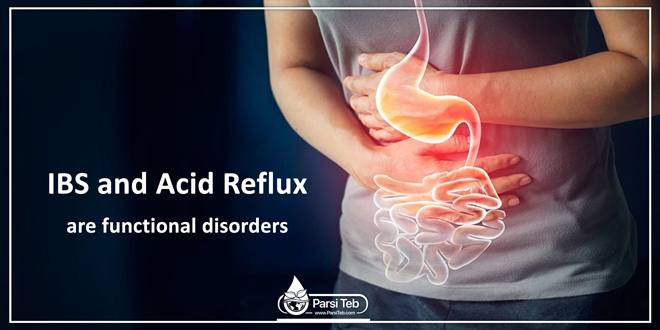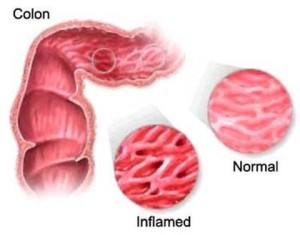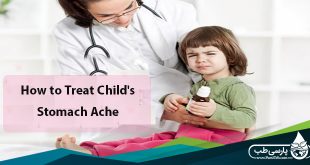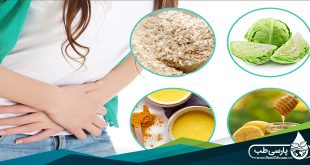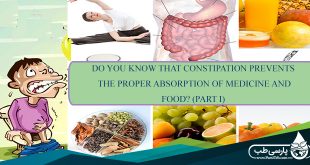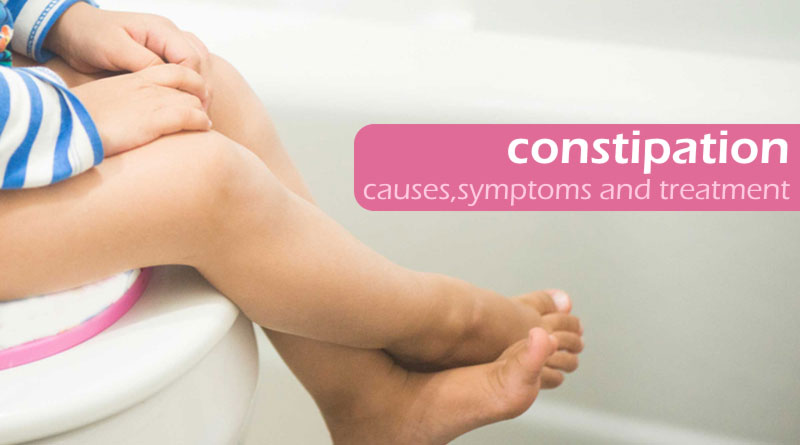Irritable bowel syndrome (IBS) is a common condition that affects the large intestine, or colon. Symptoms usually include abdominal pain, cramps, bloating, constipation, diarrhea, and gas. Other symptoms of IBS may include urgent bowel movements or the feeling of incomplete evacuation.
The bowel muscles that are responsible for moving food through the intestinal tract may contract more forcefully or longer than usual, in patients with IBS. This pushes food through the system more rapidly. The passage of food slows in some cases and stools become dry and hard.
Despite being uncomfortable, IBS doesn’t cause inflammation, nor will it permanently damage the colon.
Understanding Acid Reflux and GERD
GERD is a disease that may cause significant damage to the tissues and cells of the esophagus over time. GERD occurs when stomach acids back up into the esophagus due to a poor-functioning lower esophageal sphincter (LES). The LES is a band of muscle that acts as a valve between the esophagus and the stomach.
The main symptom of both acid reflux and GERD is frequent heartburn. Other symptoms may include burning in the throat or a sour liquid taste in back of the mouth. While occasional acid reflux is normal, GERD typically requires treatment to relieve symptoms such as coughing, wheezing, and difficulty swallowing.
The IBS/GERD Connection
IBS isn’t a psychological illness, nor is it considered a true disease. It’s classified as a “functional disorder,” in which symptoms are real, but lack an identifiable physiological cause. Although the causes of irritable bowel syndrome are unknown, it’s almost always exacerbated by stress.
IBS also often coexists with the chronic form of acid reflux, known as “gastroesophageal reflux disease” (GERD). This coexistence suggests that the two conditions may share a common disease mechanism.
According to a 2009 study published in Digestive Diseases and Sciences, “a first diagnosis of either IBS or GERD significantly increases the risk of a subsequent diagnosis of the other condition.”
IBS Triggers
Different stimuli may trigger IBS in different people. For instance, gas or bloating may cause it in one person, while another may react to certain foods, medications, or stress.
Women are more likely than men to suffer from IBS. Often, women will find that IBS symptoms are worse during menstruation. This has led researchers to believe that hormones may play a role in the development of IBS.
Foods to Avoid
Perhaps not surprisingly, IBS and acid reflux are often triggered by the same kinds of foods. Those suffering from one or both conditions may find relief by avoiding the following:
- alcoholic beverages
- caffeinated beverages, such as coffee
- carbonated beverages, such as colas
- chocolate
- citrus fruits
- fatty and fried foods
- garlic and onions
- mints such as peppermint or spearmint
- spicy foods
- tomato-based foods, such as pizza and spaghetti sauces
A Note About Lactose Intolerance and IBS
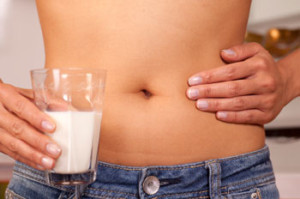 The problem may be lactose intolerance if trigger foods include dairy products such as milk, cheese, or ice cream—and not IBS. Individuals who experience cramping or bloating after eating dairy products should abstain for a period of two weeks to see if symptoms subside.
The problem may be lactose intolerance if trigger foods include dairy products such as milk, cheese, or ice cream—and not IBS. Individuals who experience cramping or bloating after eating dairy products should abstain for a period of two weeks to see if symptoms subside.
If symptoms do not subside, speak with your doctor about the possibility of lactose intolerance.
Treatments for Acid Reflux and IBS
While medications may provide relief in many cases, the preferred treatment for most people suffering from both acid reflux and IBS is lifestyle and dietary modification. In addition to avoiding the above foods, sufferers of both conditions may find relief by losing weight, quitting smoking, and learning stress reduction techniques such as deep breathing, exercise, or yoga.
Although lifestyle and dietary changes can benefit many people with IBS, those who aren’t helped may find relief with medications such as the intestinal antispasmodic Levsin or dicyclomine HCLs like Bentyl. Proton pump inhibitors (PPIs) such as Prilosec are the drugs of choice for GERD sufferers.
Antacids including Rolaids or Tums may be enough to relieve symptoms for those with occasional mild acid reflux.
Reference:
http://www.healthline.com/
 Parsi Teb Physical and Mental Health Journal
Parsi Teb Physical and Mental Health Journal 